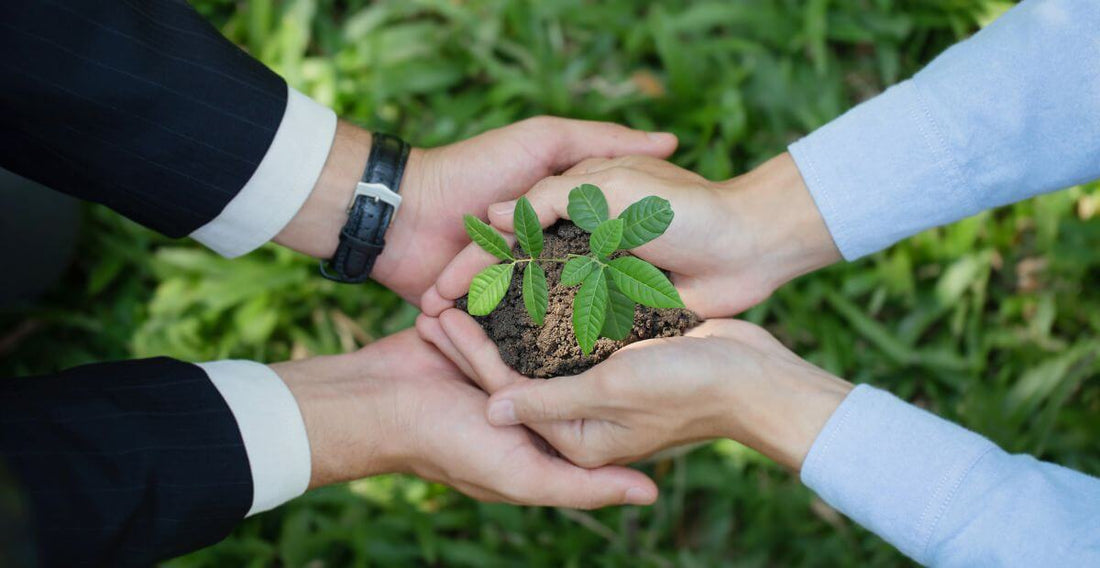
Young Eden Partners with San Francisco Golden Gate Mothers Group & Eden Reforestation Projects to Increase Local & Global Sustainability
Share
First-of-its-kind sustainable fashion marketplace empowers moms and adds carbon neutrality to its business standards.
When you are trying to make any kind of change in the world, you are unlikely to succeed if you’re working alone. Having wonderful partners along the way can make all the difference in achieving your goals.
Our team at Young Eden set out to create a one stop shop that makes it easier for families to make healthier, planet-friendlier choices for their children. We began by curating organic and sustainably sourced apparel for babies and kids that are natural, nontoxic and kinder to the environment.
We are proud to announce that Young Eden is furthering its mission by forging exciting new alliances with organizations that share our commitment to building a sustainable world for future generations.
Young Eden was formed by two fourth generation San Franciscans and mompreneurs, so it makes perfect sense that we would become partners to the San Francisco Golden Gate Mothers Group (GGMG), a local organization with 4,000+ strong members of working moms, stay-at-home moms, and moms-to-be seeking to nurture their children, community, and environment.

Through the partnership, GGMG members will have access to exclusive discounts when shopping Young Eden’s sustainable fashion marketplace.
Additionally, Young Eden has partnered with Eden Reforestation Projects, a nonprofit NGO that works in developing countries to rebuild natural landscapes destroyed by deforestation. With this engagement, made possible by theGoodAPI, every item purchased from Young Eden will give back a donation of 1 Mangrove tree planted in Madagascar.

Young Eden's new commitment to support reforestation also helps our company become carbon neutral, raising the standard in our mission to support sustainability.
In the global fight against climate change and global warming, reforestation and tree planting are essential because trees serve as sinks that absorb greenhouse gas carbon dioxide from the atmosphere, offsetting carbon emissions.
McKinsey’s 2022 report following the COP26 UN Conference on Climate Change indicated that over 5,200 businesses pledged to meet net-zero carbon targets by 2050, but in 2024 the company reported that most consumer companies are not on track to meet decarbonization goals.
As brands around the world work toward adopting more sustainable practices this year, we hope to lead by example and look forward to seeing more businesses incorporate methods of carbon reduction.
FAQ
How does Young Eden ensure sustainable sourcing of the apparel for babies and kids in its marketplace?
The team at Young Eden carefully vets clothing brands that we carry to ensure they are sustainable. We do this by verifying that company certifications, materials used, product sourcing, and business practices meet our stringent criteria of being organic, nontoxic, recycled, biodegradable and/or certified by GOTS, Oeko-Tex, Fairtrade or other industry standards.
How has Eden Reforestation Projects’ efforts in Madagascar made an impact from planting Mangrove trees in that region?
In less than a decade, Eden Reforestation Projects' work in Mahajanga, Madagascar developed into a thriving mangrove forest, resulting in the return of a healthy aquatic ecosystem. Learn more on the organization’s website.
What is a sink?
According to the IPCC, 2021: Annex VII: Glossary, a sink is defined as any process, activity or mechanism which removes a greenhouse gas, an aerosol or a precursor of a greenhouse gas from the atmosphere.
